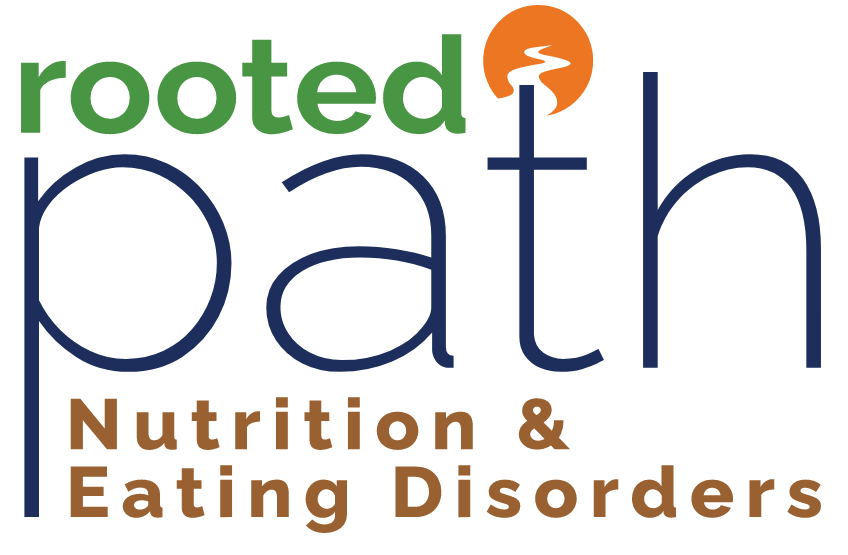Eating disorders are complex mental health conditions that go far beyond food. They involve intricate relationships between emotions, behavior, and physical health. They impact people of all ages, genders, ethnicities, and—importantly—all body shapes and sizes. The myth that eating disorders only affect thin, white, young women is not only false, but dangerous. It leads to missed diagnoses, delays in care, and stigma that keeps people from seeking the help they need.
At their core, eating disorders like anorexia nervosa, bulimia nervosa, binge eating disorder, and other specified feeding and eating disorders (OSFED) are not about food itself—they are about using food, or the absence of it, to cope with underlying emotional and psychological struggles.
At the heart of eating disorder recovery is re-establishing a safe and healthy relationship with food and the body. Nutrition therapy, led by a registered dietitian (RDN) or certified nutritionist (CN), plays a critical role in helping individuals nourish their bodies and minds—and this support is just as vital for someone in a larger body as it is for someone who is underweight.
Why Nutrition Support Is Essential in Eating Disorder Treatment
Nutrition therapy is a critical part of eating disorder treatment. Malnutrition—intentional or unintentional—is a hallmark of nearly all eating disorders, and without proper nutritional rehabilitation, mental and physical healing cannot occur. Starvation, bingeing, purging, or chronic dieting can disrupt metabolism, hormones, digestion, and brain function. Re-establishing regular, adequate nourishment is the foundation for any further psychological or behavioral work.
Registered dietitians and nutritionists, especially those trained in eating disorders, play a central role in this healing process. They guide individuals toward a healthier relationship with food and body through structured support, education, and collaboration with other professionals such as therapists, physicians, and psychiatrists.
Eating Disorders Don’t Have a “Look”
One of the most harmful misconceptions in both the medical community and the public is that eating disorders only happen to thin people. In reality:
- People with atypical anorexia meet all the criteria for anorexia nervosa but are not considered underweight.
- Individuals in larger bodies may suffer from binge eating disorder or bulimia nervosa, with their symptoms often dismissed as “lack of willpower” or “emotional eating.”
- Many people of all sizes engage in restrictive eating, compulsive exercise, or purging, but their behaviors are overlooked because they don’t appear undernourished.
As a result, people in higher-weight bodies may be praised for weight loss—even when it’s the result of extreme restriction, illness, or distress. This reinforces disordered behaviors and increases the risk of long-term physical and psychological harm.
What Working with a Dietitian Nutritionist Looks Like in Inclusive Eating Disorder Recovery
A nutritionist working with someone with an eating disorder does much more than provide a meal plan. Here’s what the process typically involves:
1. Assessment and Understanding – Build Connection
The first sessions are often spent getting a full picture of the individual’s medical history, eating behaviors, current nutritional status, and relationship with food and body. The nutritionist will assess risk factors, such as extreme food restriction, purging methods, or weight fluctuations, and coordinate with the medical team if urgent care is needed.
2. Individualized Nutrition Plan – Focus on Health, Not Weight
A meal plan may be used, but it is not a “diet” in the traditional sense. Rather, it’s a flexible structure aimed at ensuring adequate nutrition, regular eating, and gradual normalization of food behaviors. This could mean supporting someone to reintroduce feared foods or challenge rigid eating patterns.
The goal is not to make the body conform to an ideal size—it’s to ensure the body is well-nourished, functioning properly, and supported with consistent, adequate food. Nutritionists help dismantle the belief that health is only achievable through weight loss.
3. Nutrition Education and Cognitive Work – Challenging Internalized Weight Bias
Clients learn about how the body uses food, the dangers of malnutrition, and how restrictive or compensatory behaviors affect physical and mental health. The nutritionist may also help challenge food myths and beliefs rooted in diet culture (e.g., “carbs are bad,” or “clean eating is always healthier”).
Many people, regardless of their body size, carry internalized fatphobia due to years of exposure to diet culture. A nutritionist helps clients recognize and challenge these beliefs, emphasizing that health, worth, and eating habits are not determined by weight.
4. Behavioral and Emotional Support – Restoring Trust in the Body
Many individuals experience intense guilt, fear, or shame around food. A nutritionist provides a nonjudgmental space to explore these feelings and reinforce skills learned in therapy—like mindfulness, self-compassion, and emotion regulation—within the context of eating.
For individuals in larger bodies, the process of recovery can include grieving the idea of a “goal weight” and learning to respect their body as it is. The nutritionist supports this by introducing intuitive eating principles, body attunement, and permission to eat.
5. Trauma-Informed and Individualized Care
People in marginalized bodies often experience trauma related to their weight—whether through bullying, medical fatphobia, or societal exclusion. A skilled nutritionist works alongside therapists and physicians to ensure that care is respectful, affirming, and safe.
Diet Culture vs. Eating Disorders: The Slippery Slope
It’s essential to distinguish between disordered eating, diet culture behaviors, and clinical eating disorders—though they often exist on a continuum.
- Diet culture glorifies thinness and equates moral value with eating “clean,” being fit, or controlling food intake. It normalizes skipping meals, categorizing foods as “good” or “bad,” and using exercise to “earn” food. Promotes thinness as the ultimate sign of health or virtue. Encourages strict food rules, “clean eating,” and moral language around eating. It also normalizes disordered behaviors like fasting, over-exercising, and obsessing over calories. Diet culture is the backdrop against which many eating disorders develop.
- Disordered eating refers to unhealthy eating behaviors that don’t meet the full criteria for an eating disorder but are still harmful (e.g., chronic dieting, bingeing, rigid rules).
- Eating disorders involve persistent patterns of disordered eating combined with psychological distress, significant impairment, and physical risks. They are medical and mental health diagnoses that require professional treatment.
Diet Culture: A Common Thread
While diet culture affects everyone, those in larger bodies often experience it more intensely, as they may face direct pressure from doctors, family members, or peers to lose weight—even when those efforts compromise their health.
This makes the support of a non-diet, weight-inclusive nutritionist all the more important. Recovery involves unlearning not just disordered behaviors, but the cultural conditioning that made those behaviors seem acceptable—or even admirable.
Many people begin with dieting or engaging in “wellness” trends before developing a full-blown eating disorder. What starts as a “healthy lifestyle” can easily turn into obsessive, dangerous behavior, especially in a culture that rewards weight loss and food restriction.
Interested in getting more support around breaking free from diet culture and feeling more at peace in your body? – Check out our group program Unlearning Diet Culture – we accept health insurance!
Why Professional Support Matters
Treating an eating disorder isn’t about getting someone to “just eat.” It requires unlearning deeply held beliefs about food, weight, and worth. A nutritionist with expertise in eating disorders brings critical knowledge and compassion to this process. They help clients move from fear and rigidity to trust and nourishment—physically and emotionally.
If we only see eating disorders through the lens of emaciation, we miss the suffering of countless others. People in average-sized or larger bodies often feel they are “not sick enough” to deserve help, even when their mental health and quality of life are severely compromised.
Nutrition therapy that is compassionate, individualized, and inclusive helps correct that narrative. It tells people: Your pain is valid. Your behaviors are harmful—even if others can’t see it. You deserve care—no matter your size.
Recovery is possible, but it takes a team—and a nutritionist is an essential part of that team.
How Rooted Path Dietitians and Nutritionists practice Weight-Neutral Care in Eating Disorder Nutrition Counseling
Here’s a sample script or guide that illustrates how Rooted Path nutrition providers might approach weight-neutral care when working with a client recovering from disordered eating. This style of dialogue emphasizes empathy, respect for body diversity, and a focus on health behaviors—not weight.
Nutritionist:
“Before we dive into nutrition strategies, I want you to know that this is a weight-inclusive space. That means our work together won’t be centered around weight loss or trying to change your body shape. Instead, we’ll focus on helping you feel better physically and emotionally—by nourishing your body, improving your relationship with food, and restoring trust in your body’s cues.”
Client:
“But my doctor said I need to lose weight. Isn’t that important for my health?”
Nutritionist:
“That’s a common message, and I understand where that concern comes from. What we now understand is that weight alone isn’t a reliable indicator of health. People in all body sizes can experience both good health and health challenges. What we’ll look at instead are health-supportive behaviors—like eating regularly, getting enough sleep, reducing stress, and moving your body in ways that feel safe and doable for you.”
Client:
“So you’re saying I shouldn’t try to lose weight, even if it makes me uncomfortable?”
Nutritionist:
“It’s okay to have those feelings—our society puts a lot of pressure on people to look a certain way. But weight loss as a goal can often keep us stuck in cycles of restriction, guilt, and shame. What I’m offering is a different approach: we’ll work on healing your relationship with food, building habits that support your overall well-being, and letting your body settle into the place it feels healthiest—whatever that may look like for you.”
Client:
“I’ve always felt like I don’t have an eating disorder because I’m not underweight.”
Nutritionist:
“I hear that a lot, and it’s one of the most harmful myths out there. Eating disorders and disordered eating can affect anyone—regardless of size, shape, or weight. What matters is how your behaviors are impacting your health, mood, and quality of life. And if those things are suffering, then you deserve support and care, no matter what your body looks like.”
Rooted Path and Eating Disorder Provider Highlights:
- Use non-stigmatizing, inclusive language.
- Validate the client’s emotions without reinforcing weight bias.
- Gently challenge misconceptions around weight and health.
- Reframe goals around well-being, not appearance.
- Build trust by emphasizing safety, partnership, and respect.
Final Thoughts
Eating disorders thrive in silence and shame. Diet culture often masks or even praises harmful behaviors, making early detection and intervention more difficult.
Eating disorder recovery is not a one-size-fits-all process—literally or figuratively. It requires dismantling myths about weight and health, healing the body and mind, and rejecting diet culture in favor of nourishment, balance, and self-respect.
Working with a nutritionist is a powerful part of this journey. Through education, structure, and support, they help clients move away from fear and judgment and toward a more peaceful, embodied relationship with food. Nutrition therapy empowers individuals to see food not as the enemy, but as a tool for healing and self-care.
Because everyone deserves that peace—no matter their size.

